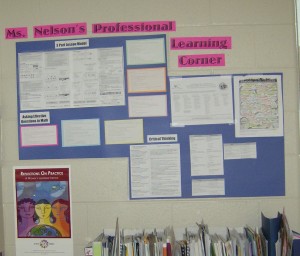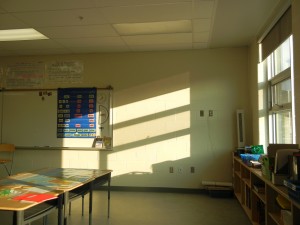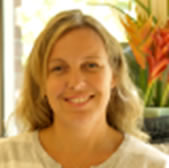 I love teaching.
I love teaching.
Like you’ve never read that before?
I get excited when I learn something new and get to share it with my class and others in our profession – or with any one else, for that matter. Also not news.
I’m not alone in a relentless pursuit of learning. My wife can attest that my personality changes gears whenever the conversations turn to education. And why not? It’s like a spark plug ignites and a fire lights my mind.
With education, I’m in my happy place.* When it comes to gatherings of educators, I always want to be there too. However, I recently declined to attend a conference. I even surprised myself by this decision, but was really happy my pass was able to allow another colleague to go in my place. This got me wondering. Why am I eschewing some educational events while gravitating towards others?
To wrestle with this I need to purge some myths(real or perceived) that might be affecting my decision to say yes or no to attend certain conferences going forward.
Myth 1: Everybody loves sitting and listening to speakers prattle on for endless hours? UGH!!! This is the antithesis to the differentiation we embody in the classroom. So why is it this way at education conferences so conferences? If I have to endure one more power point slide show with content I could read from home I’m done.
Many conferences feature speakers who are bringing published research and or their brand of common sense content to conferences. Theirs are messages which have already been shared among those actively engaged in a Twitter PLN. The exception being they are in the same room for a conference. Is it worth it? How do we extract a greater value from keynote speakers that cannot be taken from their books?
After 5 years of conferences, I struggle to find anything to rival Sir Ken Robinson, Sugata Mitra or Rita Pierson’s TED Talks as the last times my mind has been set ablaze with such a lasting impact. How can we curate moments like this when they only come around so rarely?
Yet, if you ask me about student speakers who have rocked my thought life? I only have to go back to my own school’s TED Ed Club weekly meeting, or the recently held TED Youth to find Ishita Katyal, Marta Botet Borras, Chelsea Ha or Raymond Wang. Perhaps a stronger student presence at educational conferences is necessary to bring the truth to educators?
Myth 2:
Everyone wants to view data sets gleaned from standardized tests ranking different nations, and then to applaud delegations from other countries supposedly doing education better than us? This bugs me. There seems to be an idolization of success from other countries around PISA results et al, but no tangible road map, context, funding models or political will to genuinely support change if that is what’s truly desired from seeing whether the grass really is greener on the other side of the fence.
I find this a Catch-22. They should pay our experts to visit them, and share what we do well. We have excellent systems in place that serve our students in an incredibly effective and affordable manner. Better yet, as an act of fiscal restraint and responsibility, why not cancel the visits and make a couple of Skype calls instead?
Myth 3:
Everyone feels good after their heart strings have been tugged on or torn out by a powerful narrative about the nobility of our calling? Me too. The myth is that the feeling lasts. I am touched by triumph, but am also disappointed that the fire cannot be stoked, maintained, and spread further beyond the ride home or at the next staff meeting.
How do we keep the fires burning by authoring our own every day success stories in the classroom. This might mean blogging, micro-blogging(Instagram, Twitter), and creating leadership opportunities beyond our comfort zones. If we stay close and connected we share in the warmth and encouragement of one another. This is a powerful tool against educational apathy that can happen after messages from educational conferences are long forgotten.

This year I have attended 2 Edtech conferences (Connect 2015 & BIT15), a GAPPS type summit, 2 Ignite events, a TED conference, and most recently a Pechakucha. Of course, there were teachers at all of them hoping to learn, unlearn, and innovate what we love to do. What I discovered surprised me. The more the conferences were open to other voices and experiences, the better the level of engagement and interaction. Would education conferences benefit from having speakers and attendees from outside our hallowed halls?
Admittedly, I am a bit disappointed that the vibe and messages given at conferences dedicated solely to education have remained static year after year with few exceptions. Few, if any, big ideas from the past have been usurped by revolutionary and achievable new ones. There are some perennial favourite themes that have stood the test of time; engagement, mental health, literacy, numeracy, technology, student voice, and inclusion. Worth noting that each plays a vital role in creating the conditions for successful modern learning. As the proverb says, “There is nothing new under the sun.”
Did I miss any? Trust me. That’s enough for a decade’s worth of growth and learning. So how about some time to embrace the messages in a meaningful and manageable manner?
Should there be a pause in education so that education can catch up with all of its ideas? How are any of these ideas ever going to be implemented without more time, commitment, and guidance/leadership?
And so it goes. Teachers gather, share ideas, share experiences, commiserate, and collaborate. Every week there is another conference somewhere, another keynote speaker plucked to expound the latest wisdom culled from a data herd unlike any other. Is that all there is left for us to change the world of education? What if we started meeting other professions at conferences and working alongside of them in workshops to solve real world problems facing our youth?
I propose to take a break from educational conferences to put into place some of the ideas that have been shared over the past few years. We all have some catching up to do.
*Anyone familiar with couple dynamics knows this can be a bone of contention in relationship politics. I am not prepared to admit this is a problem. However, let the record show, my wife is an understanding and patient person in this and several other areas of our 22 years of marriage.







